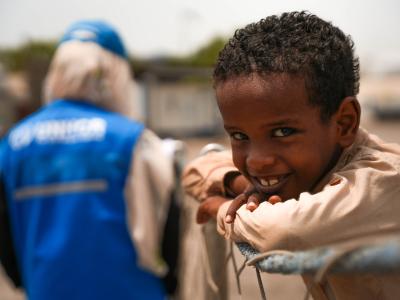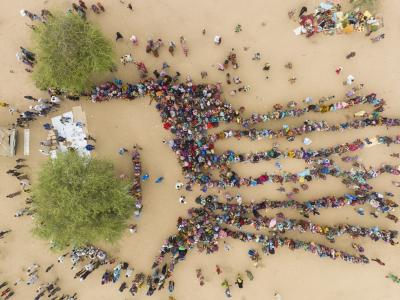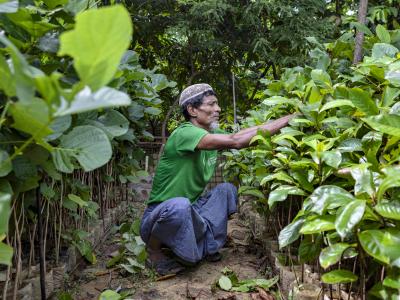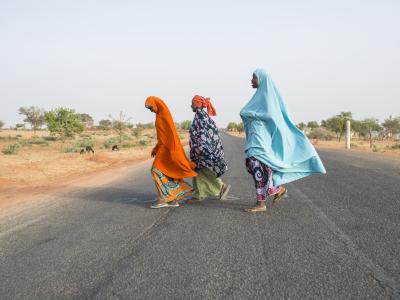Results in 2023
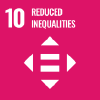
The 1951 Convention relating to the Status of Refugees and its 1967 Protocol are the cornerstone of the global refugee regime, providing a solid foundation for international protection and durable solutions. At the end of 2023, 149 States were party to one or both. There were no new accessions to either instrument during the year, but UNHCR continued to promote further accessions, including through the Global Refugee Forum (GRF) process.
In 2023, 84 UNHCR country operations reported on the extent to which national legal frameworks were aligned with the 1951 Convention and/or its 1967 Protocol, and a slight progression was observed compared to 2022, when 64 operations reported such data. A broad alignment was reported in 39% of countries in 2023, with 31% making progress towards alignment. In 2022, by contrast, only 34% of countries were aligned and 25% were making progress.
Additionally, 48 African States were party to the 1969 “OAU Convention governing the specific aspects of refugee problems in Africa” and 15 countries in the Americas have incorporated the broader refugee criteria under the 1984 “Cartagena Declaration on refugees” into their domestic laws. Both instruments are key regional complements to the 1951 Convention and 1967 Protocol.
At least 154 countries and other territories have laws in place that relate to the protection of refugees and asylum-seekers. In 2023, the Kyrgyz Republic improved its law to grant refugees access to health care. Another positive example was Chad, which signed the implementing decree of its 2020 Asylum Law, a result of the country’s commitments made during the first Global Refugee Forum in 2019. At the 2023 Forum, many pledges related to law and policy reform were made, across multiple sectors. For example, 38 law and policy pledges were made relating to the multi-stakeholder pledge on economic inclusion and social protection.
There were also 13 pledges submitted under a multi-stakeholder pledge led by UNHCR, which called for States to accede to the 1951 Convention and/or its 1967 Protocol and to withdraw reservations and declarations, which can restrict the rights of refugees in practice. The pledges included a commitment by Burkina Faso to adopt a law on domestication of the Kampala Convention in 2024 and by the Democratic Republic of the Congo to introduce machine-readable travel documents for refugees.
UNHCR provided advice and support to States in drafting and amending national laws, to ensure consistency with international and regional legal standards. UNHCR engaged with the legislative processes of 103 countries and other territories. 53 countries and other territories adopted 92 laws or legislative changes, 49 of which represented advances in refugee rights.
In promoting international instruments for the protection of refugees and supervising their application, UNHCR launched an interactive “Refugee treaty and legislation dashboard” that provides information on the global legal protection environment for refugees and asylum-seekers, including data on refugee treaties and asylum laws around the world.
In assisting courts around the world in adjudicating asylum cases, in 2023 UNHCR intervened as an amicus curiae in 17 cases in 11 jurisdictions, including 12 before national courts in eight countries and five before regional courts involving five countries. Our interventions addressed a wide range of issues, including access to territory and asylum procedure, eligibility for recognition of refugee status, the externalization of international legal obligations, the right to family unity for refugees and the application of international refugee law to persons fleeing in the context of the impacts of climate change.
UNHCR advocated through the UN human rights mechanisms, delivering four statements during Human Rights Council sessions, contributing information for five Special Procedures’ annual reports and five country visits, preparing 25 Universal Periodic Review submissions, sharing 117 confidential written briefs with UN treaty bodies and participating in eight human rights-related inter-agency task teams. UNHCR, jointly with OHCHR, supported establishment of a Platform of Independent Experts on Refugee Rights, bringing together UN and regional mechanisms. UNHCR strengthened its engagement with national human rights institutions (NHRIs), supporting a multi-stakeholder pledge from the Global Alliance of NHRIs and corresponding national-level pledges from NHRIs in the Philippines and the Plurinational State of Bolivia, among others.
The 1954 Convention relating to the Status of Stateless Persons and the 1961 Convention on the Reduction of Statelessness are core instruments to prevent statelessness and protect and assist stateless persons. At the end of 2023, 97 States were party to the 1954 Convention and 79 to the 1961 Convention. This included the Republic of the Congo, which acceded to the two instruments in 2023.
Further, the African Union adopted a Protocol to the African Charter on Human and People’s Rights Relating to the Specific Aspects of the Right to a Nationality and the Eradication of Statelessness in Africa, ensuring stateless people and those at risk of statelessness can exercise their right to a nationality and, in turn, have better access to other human rights as well.
Data on countries’ alignment with the 1961 Conventions in 2023 suggested a greater degree of alignment than similar reporting showed in 2022. In 2023, UNHCR operations reported data for 70 countries, and more than one third had a national legal framework that was broadly aligned with the Convention. Another quarter of the countries were progressing towards alignment. In 2022, a smaller sample of 42 countries showed that only eight, or 19% of the total, were broadly aligned with the Convention, while 36% were making progress. However, the 2023 data found 27 countries that were not aligned to the Convention, up from 19 in 2022.
Core indicators

3.1 Extent national legal framework is in line with the 1951 Convention and/or its 1967 Protocol

3.2 Extent national legal framework is in line with the 1961 Convention on the Reduction of Statelessness
Spotlight
Barke Hamisi always felt she was a Kenyan, until her first encounter with the stigma of statelessness.
Nearly three decades later, she can finally say, “I belong” after Kenya recently concluded a registration process for all members of the Pemba community in the country.
Years after Tebogo Khoza was refused an ID document, a high court judgement has restored his rights and offered hope to millions of other undocumented South Africans.
"When I got my ID, I knew my life was going to be okay."

Challenges to achieving outcomes
Unfortunately, multiple challenges remained. 69 States party to the 1951 Convention and/or its 1967 Protocol maintained reservations. Further, misinformation, disinformation and hate speech grew and racism, xenophobia and religious tensions went unaddressed or were even promoted. As public concern about refugee arrivals was fuelled by nationalistic, populist, and anti-refugee narratives, more restrictive laws and policies affecting international protection and solutions for refugees were introduced.
Financial overview
Global expenditure and budget for Protection policy and law
$175 million spent against a budget of $301 million
$126 million of unmet needs or 42% of the budget

